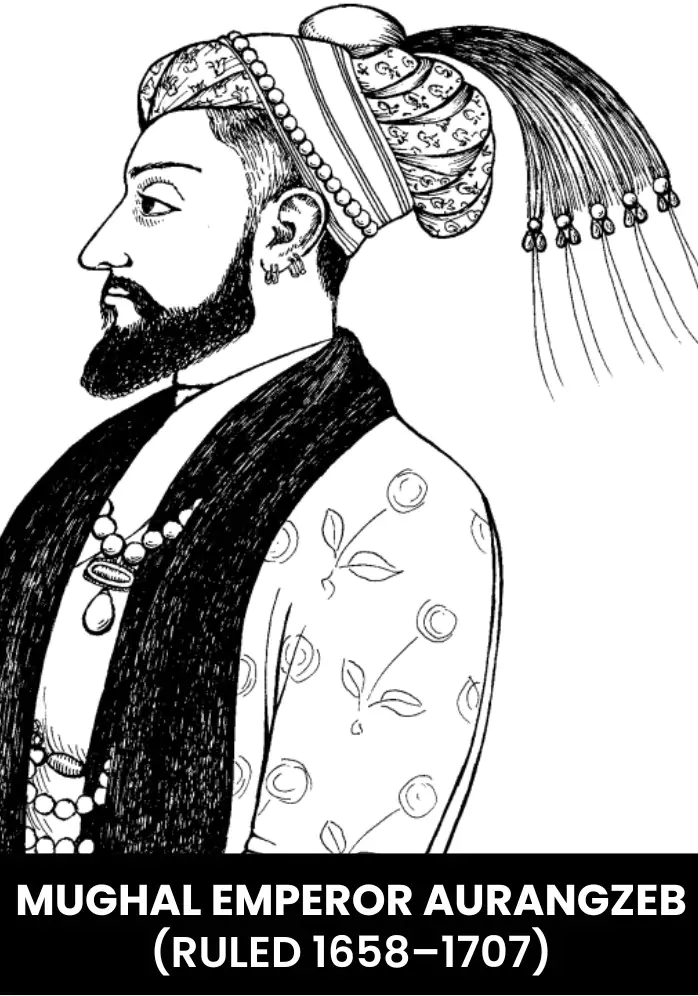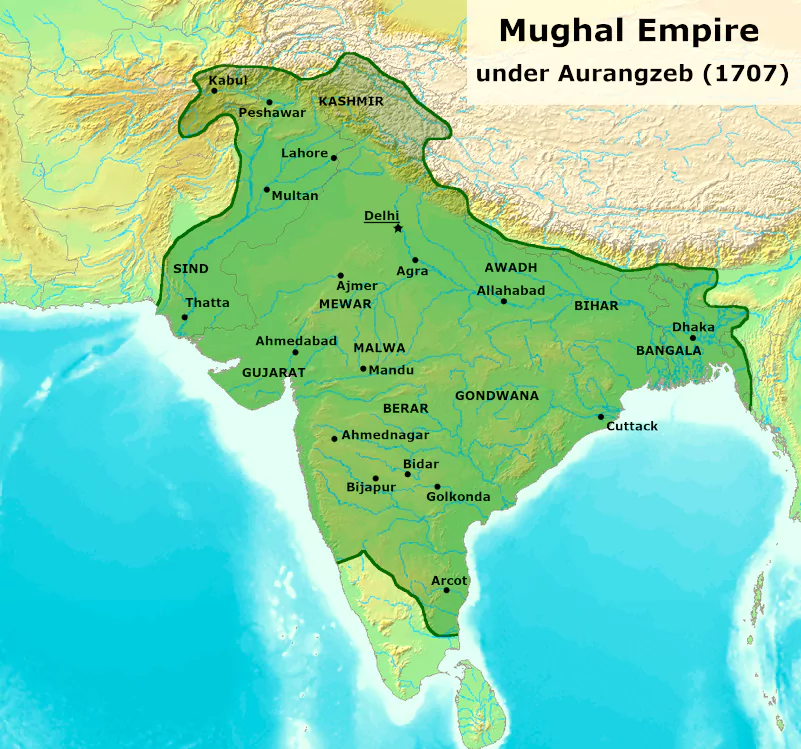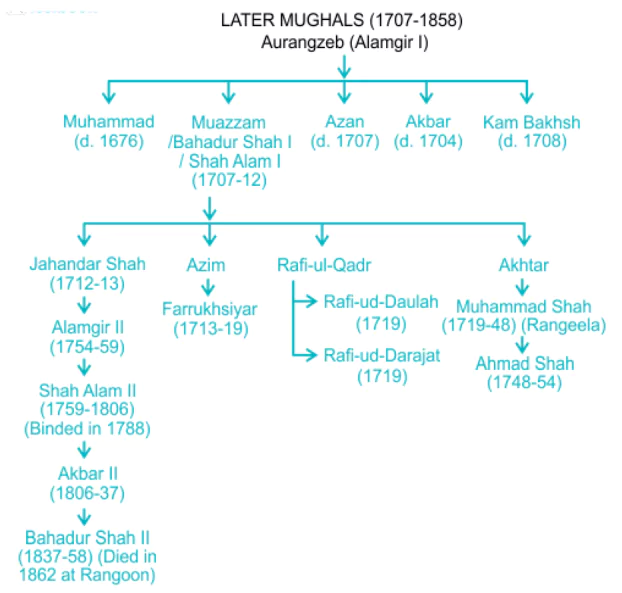Aurangzeb (Muḥī al-Dīn Muḥammad) also known as Alamgir I (Conqueror of the World), was the sixth Mughal emperor, reigning from 1658 until he died in 1707.

| Aurangzeb (Muḥī al-Dīn Muḥammad) also known as Alamgir I (Conqueror of the World), was the sixth Mughal emperor, reigning from 1658 until he died in 1707. Under his emperorship, the Mughal Empire reached its greatest extent with territory spanning nearly the entirety of the Indian subcontinent. In 1663, Aurangzeb issued a decree prohibiting the practice of Sati, regardless of whether or not the female was being forced to do the Sati. Aurangzeb moved the capital back from Delhi to Akbarabād. Later he shifted it to Aurangabad in the Deccan in 1653. |
|---|

In the year 1658, Emperor Shahjahan fell seriously ill. He had four sons – Dara Shikoh, Aurangzeb, Shuja and Murad. All four brothers wanted to succeed to the throne. Shahjahan declared his eldest son Dara as his successor. But the other three sons refused to accept this. Each of them marched with their armies towards Agra, the capital, to seize the Mughal throne. A number of battles took place between the brothers, and in the end, Aurangzeb emerged successful in the Battle of Dharmat (1658). However, his father recovered from his illness. Although Shahjahan lived on for another 12 years, Aurangzeb declared himself to be the emperor and kept his father in prison till his death.

Aurangzeb had one other alternative way to tackle the problem of scarcity of jagirs. That was to expand his empire and annex other kingdoms into his own. To the east of the Mughal Empire was the kingdom of Ahom. This was in present-day Assam. In 1663 an amir of Aurangzeb, Mir Jumla, defeated the Ahom king and annexed his kingdom into the Mughal empire. But in just a few years, the Ahom king was able to drive the Mughal army away and become free once again.
Akbar had abolished this tax on the Hindus but Aurangzeb again levied this tax. The objective of the tax was two-fold; first
|
|---|




|
|---|
Three sons of Aurangzeb were:
|
|---|
|
|---|
Overall, Aurangzeb’s sons were unsuccessful in their attempts to gain power and their infighting contributed to the decline of the Mughal Empire. |
|---|
| Must Read | |
| NCERT Notes For UPSC | UPSC Daily Current Affairs |
| UPSC Blogs | UPSC Daily Editorials |
| Daily Current Affairs Quiz | Daily Main Answer Writing |
| UPSC Mains Previous Year Papers | UPSC Test Series 2024 |
He also known as Alamgir I (Conqueror of the World), was the sixth Mughal emperor, reigning from 1658 until he died in 1707.
Under his emperorship, the Mughal Empire reached its greatest extent with territory spanning nearly the entirety of the Indian subcontinent ranging from Afghanistan to Tamil Nadu and up to Assam.
Three sons of Aurangzeb were: 1. Muhammad Azam Shah 2. Muhammad Akbar 3. Muhammad Sultan
Bibi ka Maqbara (Maharashtra), Idgah in Mathura and Badshahi Mosque near Lahore fort are some of the monuments.
<div class="new-fform">
</div>